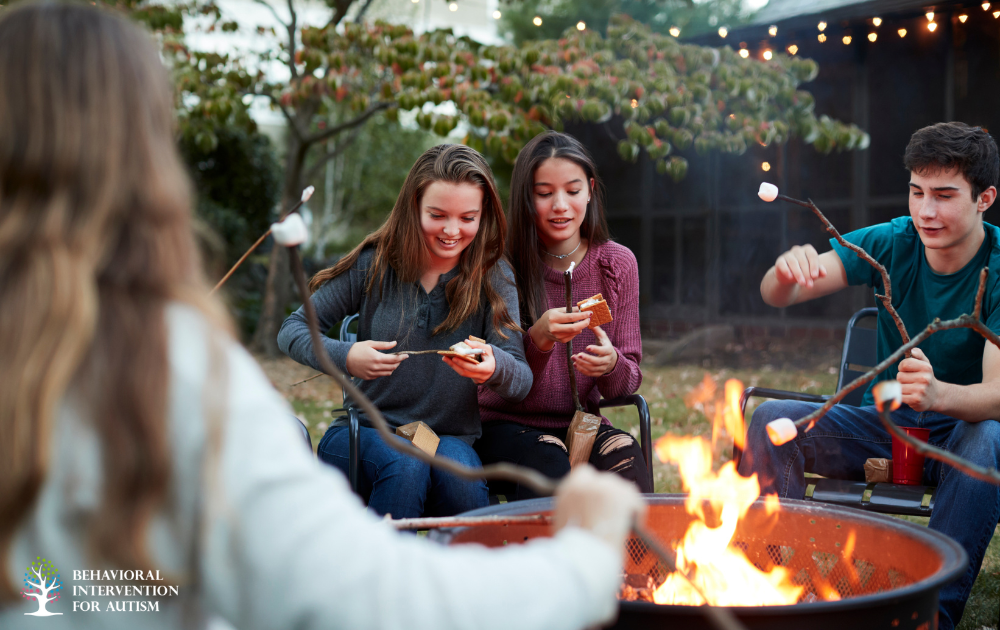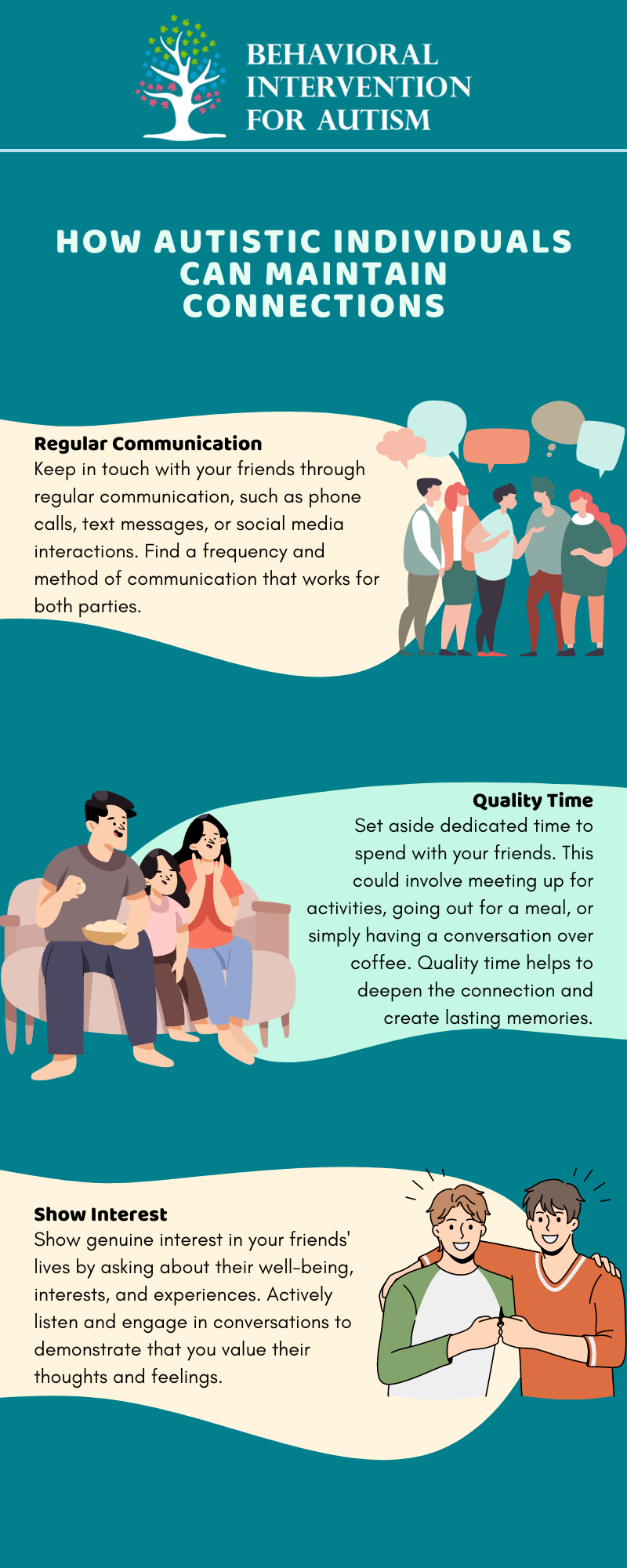
Making friends can present unique challenges for individuals with autism. Understanding these challenges is essential in order to provide the necessary support and guidance.
Many autistic individuals experience social isolation due to various factors. This can include feeling that non-autistic people are unwelcoming, preferring solitude, lacking confidence or social skills, finding small talk challenging, or avoiding past negative experiences like bullying. These factors can contribute to a sense of isolation and make it difficult to connect with others.
In this article, we’ll have a look at some key strategies that will make it easier for autistic individuals to make friends with other people, especially those who can match their energy levels.
Strategies for Building Friendships
As mentioned, individuals with autism tend to face unique challenges when making new friends. However, some strategies can help them foster connections and cultivate meaningful relationships with other people.
Here are some that can massively help:
Join Social Groups
Joining social groups with similar interests can be a great way for individuals with autism to meet new people and expand their social circle. By engaging in activities that align with their passions and hobbies, individuals are more likely to connect with others who share common interests.
Searching for local activities online, learning new skills, or inquiring about after-work activities can all serve as avenues for meeting potential friends.
Disclose the Diagnosis
Deciding whether to disclose an autism diagnosis when joining groups not specifically for autistic people is a significant decision that an individual with autism must make. Disclosing the diagnosis can help others understand their needs better and provide a supportive environment.
However, it’s important to note that disclosing can also leave some individuals vulnerable to bullying or discrimination. Each person should carefully consider the potential risks and benefits before making the decision to disclose their diagnosis.
Develop Trust
Building relationships takes time and requires the development of trust. It is not necessary to reveal everything about oneself during the first meeting with a potential friend. Relationships can develop and deepen over time through recurring interactions and exchanging contact information.
By taking the time to get to know someone gradually, individuals with autism can establish a sense of trust and comfort in their friendships.
When making friends as an autistic person, it is essential to approach the process with patience and adaptability. Making friends may not happen quickly or easily, but with effort and a willingness to adapt, it is possible to cultivate meaningful connections.
Flexibility and adjustment in social interactions are key to navigating relationships successfully, considering the unique backgrounds and needs of the individuals involved.
Maintain Connections
Investing time and effort in maintaining connections is crucial for the longevity of friendships. By engaging with others, keeping in touch, and showing interest beyond common interests, you can nurture and strengthen your connections.
Here are some tips for maintaining connections:
Practice Social Skills
Practicing social skills is a valuable approach for individuals with autism to improve their ability to make friends. Engaging in various social scenarios and practicing specific skills can help build confidence and enhance social interactions.
The following strategies for practicing social skills that greatly help:
- Ask questions about potential friends’ interests and preferences. Showing genuine interest in others can foster meaningful connections.
- Engage in conversations about shared activities. Finding common ground and discussing shared interests can create a sense of connection.
- Get to know others better. Encouraging individuals with autism to ask open-ended questions and actively listen to others can deepen their understanding of potential friends.
Additionally, practicing conversations with trusted adults can provide a safe environment for individuals with autism to improve their social skills and gain confidence. Role-playing different social scenarios and providing constructive feedback can be particularly beneficial.
Key Aspects of Friendship
There are certain key aspects when it comes to making and maintaining friendships that autistic individuals should consider. Understanding these aspects can help them navigate the complexities of social interactions and foster meaningful connections.
Let’s explore each of them:
Qualities of a Friend
Friends are people you can have fun with, share experiences, and laugh together. They appreciate you for who you are and are supportive, providing comfort when you are sad and companionship when you are lonely.
When choosing friends, it is crucial to seek individuals who are kind and respectful. Don’t engage in negative behaviors like teasing, not listening to others, or causing trouble.
Having friends who exhibit these positive qualities can create a supportive and safe social environment.
Common Interests
Finding friends who share similar interests can be beneficial for individuals with autism. Having common interests provides a foundation for connection and gives you more topics to discuss and bond over.
When you have shared hobbies, activities, or passions, it becomes easier to engage in conversations and find common ground. It’s important to explore activities or groups where you can meet others who share your interests, as this can increase the likelihood of building lasting friendships.
Effective Communication
Effective communication is a key aspect of any friendship. When engaging in conversations with potential friends, it can be helpful to ask questions about their interests and preferences. Showing genuine curiosity about their hobbies, activities they enjoy, or their favorite music band can make them feel special and help keep the conversation flowing.
Additionally, active listening and maintaining eye contact can demonstrate your interest and engagement in the conversation.
Building relationships slowly and gaining trust over time is important. It is not necessary to find out everything about a potential friend during the first meeting. Relationships can develop and deepen over time through recurring interactions and exchanging contact information.
As trust grows, individuals may feel more comfortable sharing personal experiences and emotions with their friends.
Resolving conflicts is also a crucial aspect of maintaining friendships. Misunderstandings, disagreements, or hurt feelings may occur from time to time. In these situations, it’s important to address the issue openly and honestly. Apologizing, even for a small part of the issue, can go a long way in reconciling differences, resolving conflicts, and moving forward in the relationship.
Understanding these key aspects of friendship can provide individuals with autism valuable insights into building and nurturing meaningful relationships. By seeking friends who possess positive qualities, sharing common interests, and practicing effective communication, individuals can create lasting connections and experience the joys of true friendship.
Sources:
https://kidshealth.org/en/teens/making-friends.html
https://themighty.com/topic/autism-spectrum-disorder/how-to-make-friends-autism
- 9 Common Obsessions of Children With Autism You Should Know - February 25, 2025
- What is Neurodiversity? A Guide to Embracing Differences - February 25, 2025
- Understanding Hyperfocus in Autism: What It Means and Why It Happens - February 25, 2025





